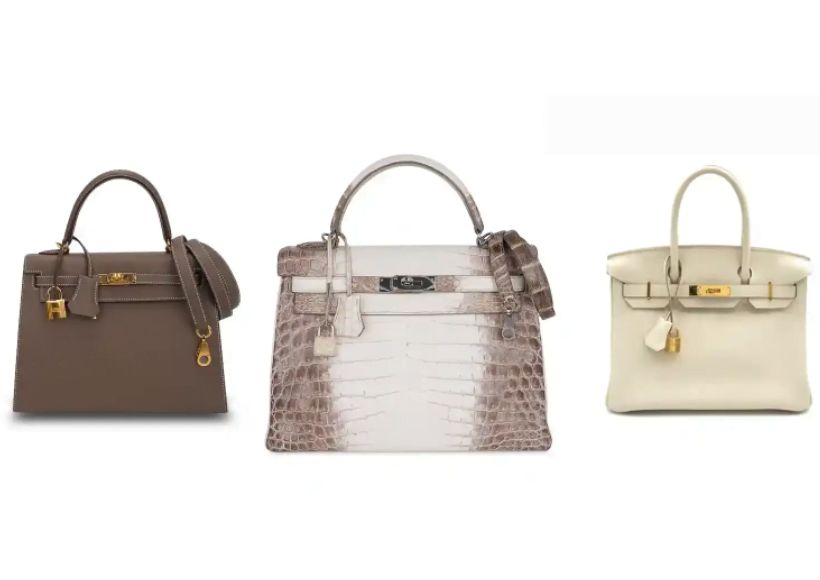Table of Contents
Bags for the elite
Sadly, you can’t just walk in off the street and purchase an iconic luxury bag in a Hermès shop unless you are prominent enough, or spend enough, to warrant one. Hermès have rules about who they will sell their products to. Even if you qualify, you’re not guaranteed to pick out the colour or size of your choice as the style of bags which Hermès retailers receive is unpredictable and inconsistent.
Sex and the City’s Samantha Jones
The Birkin bag has always been particularly highly sought after, even to this day, becoming even more popular after the unforgettable 2001 episode of Sex and the City where Samantha Jones wants a Birkin so badly that she tries to skip the waiting list by posing as someone else. After the episode was aired, the Birkin waiting list skyrocketed as a result of the extra demand generated.
The crème de la crème of high society
Hermès International, also known as Hermès of Paris or simply ‘Hermes’, was founded in 1837 by French businessman Thierry Hermès. Widely regarded as the epitome of wealth, status, and luxury in today’s world, the brand has a fascinating history that harks back to its beginnings as a manufacturer of horse harnesses on the Rue Basse du Rempart in Paris. Throughout the intervening years, it has had the privilege of serving the elite such as the Parisian Beau Monde (jet set) and even European royalty, including none other than Napoleon III. In 2023, Hermès achieved a remarkable market valuation of $218 billion.
Luxury brands concentrate more on scarcity
Over the past year, in particular, there has been a noticeable buzz surrounding the handbag market. Chanel made headlines by increasing the price of its iconic flap bag to over $10,000. Hermès implemented a policy where customers must have a substantial shopping history before they can purchase the coveted Birkin bag. The upshot? In today’s age of viral content and growing interest in investment items, luxury brands are recognising the value of creating scarcity. Although exclusivity has long played an important role in the strategies of luxury goods manufacturers, a move to encourage scarcity has been prompted in part by the increasing popularity of resale, which enables customers to get their hands on the product they desire by purchasing it preloved. According to ‘Fortune’, the global market for pre-owned goods is expected to reach $350 billion by 2027, doubling its current value.
What sets Hermès apart and makes it so special?
Hermès has consistently prioritised product quality and craftsmanship as the core pillars of their brand. During the 1970s, while other brands were transitioning to synthetic materials and components, Hermès made a deliberate choice to protect its reputation by utilising natural materials exclusively while upholding the highest quality standards in the luxury goods market. The secret to their success has been a communication strategy that highlights the Hermès lifestyle, rather than merely selling products. All this is combined with an astonishingly consistent tradition of heritage, unparalleled craftsmanship, and dedication to outstanding quality.
Hermès bags have acquired an aura of special prestige over the decades, making them highly sought after in the market. The coveted status of each bag ensures that its value appreciates over time; and in the case of limited edition models, they may increase in value before they have even left the store. Purchasing an iconic handbag from Hermès is like purchasing a timeless heirloom.
Why are Hermès bags so scarce and difficult to come by?
Hermès bags are some of the most sought-after bags in the world. This directly contributes to Hermès’ exclusive and difficult-to-obtain reputation, because of the contrast between the limited supply and high demand. It is quite rare to come across genuine Hermès bags as they are snapped up as soon as they arrive on the market.. Getting your hands on one usually requires highly competitive bidding, and that inevitably makes it even more challenging for many buyers to acquire one.
Hermès’s brand strategies – rarity and uniqueness
Patrick Thomas, the former CEO of Hermès and only the second non-family member to hold this position, once commented “The luxury industry is built on a paradox: the more desirable the brand becomes, the more it sells – but the more it sells, the less desirable it becomes”. His response perfectly captures the essence of Hermès’s brand strategy, which is centred around scarcity as well as exclusivity.
Also Read : Do You Know How To Properly Care For Your Handbags?

